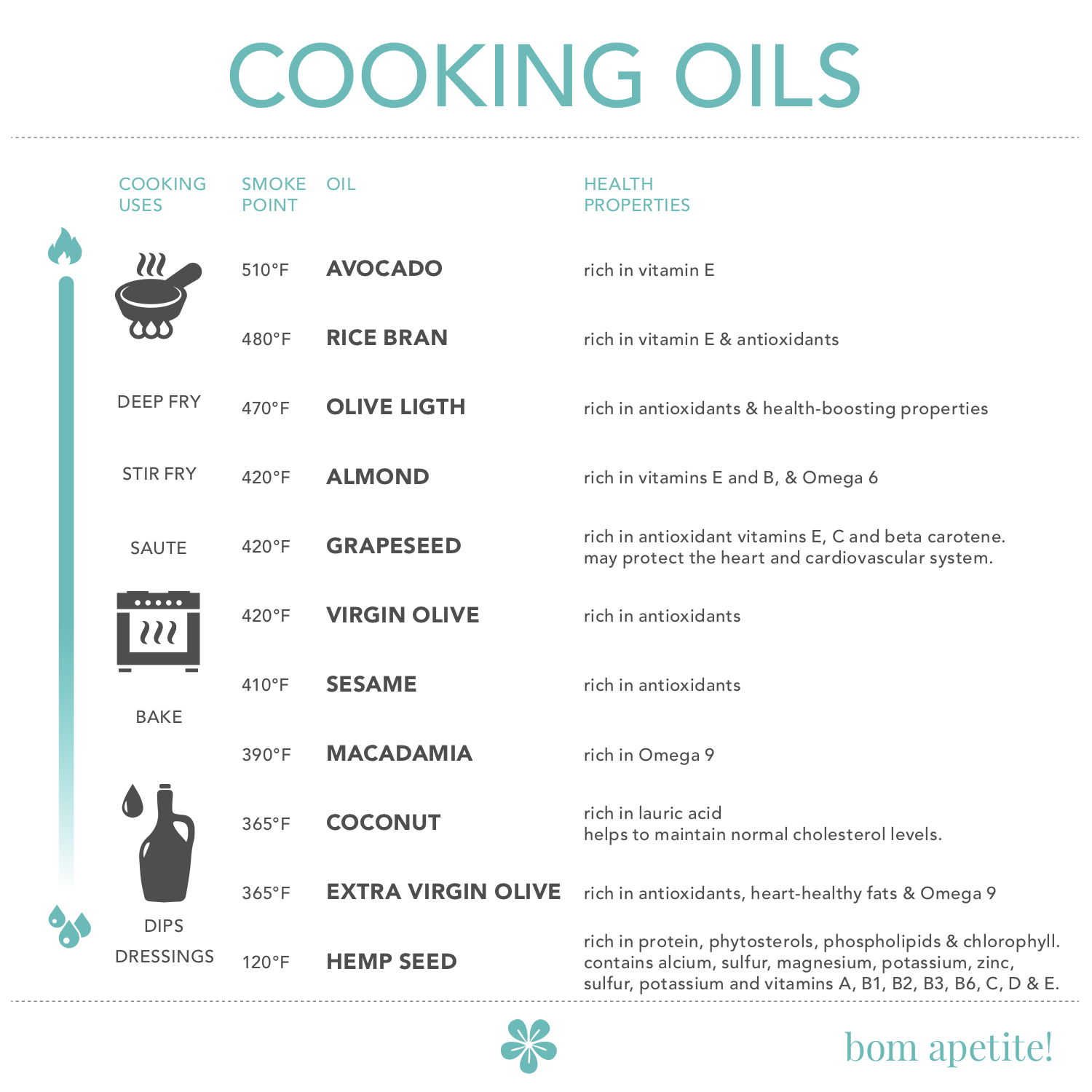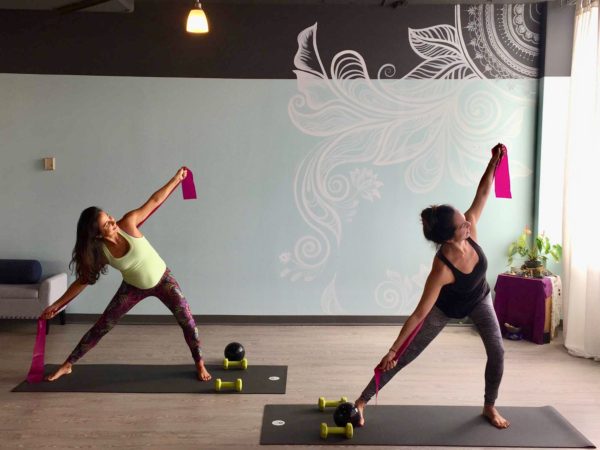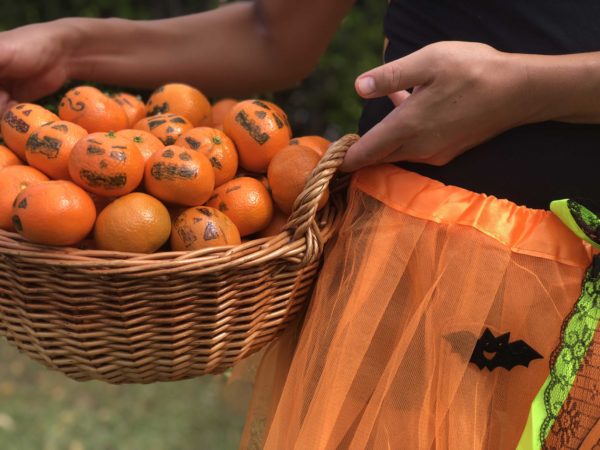I am far from a good cook!
My meals usually do not require heating and can be prepared in less than 10 minutes! Actually, I don’t even know if they can be called meals. Think of salads with veggies not very well chopped, tuna or cheese sandwiches, açaí bowl, yogurt with granola, tofu with shoyu, simple smoothies, and everything else raw and colorful that is ready to eat as quick as possible.
But this year, I am not sure if I got inspired to start getting more involved in the kitchen because I am pregnant, or maybe because I am constantly craving foods that I usually don’t eat such as anything warm and homemade. Or it could be that my inspiration came from reading “Bringing Up Bebe”, a hilarious book that was also a wake-up call to introduce a wider and more interesting variety of foods to my toddler.
Cooking (almost) every night takes a bit of planning. Honestly, the idea of cooking every night wasn’t very pleasant to me. But to my astonishing surprise, the little things about planning and cooking the dinner is becoming one of my favorite parts of the day!
Every Tuesday, we walk to the farmers market to buy local veggies and fruits. Having a variety of fresh foods available helps to design different meals. At our weekly outings to the grocery store we look for different types of rice, pastas, grains, cheeses, and meats to create interesting menus.
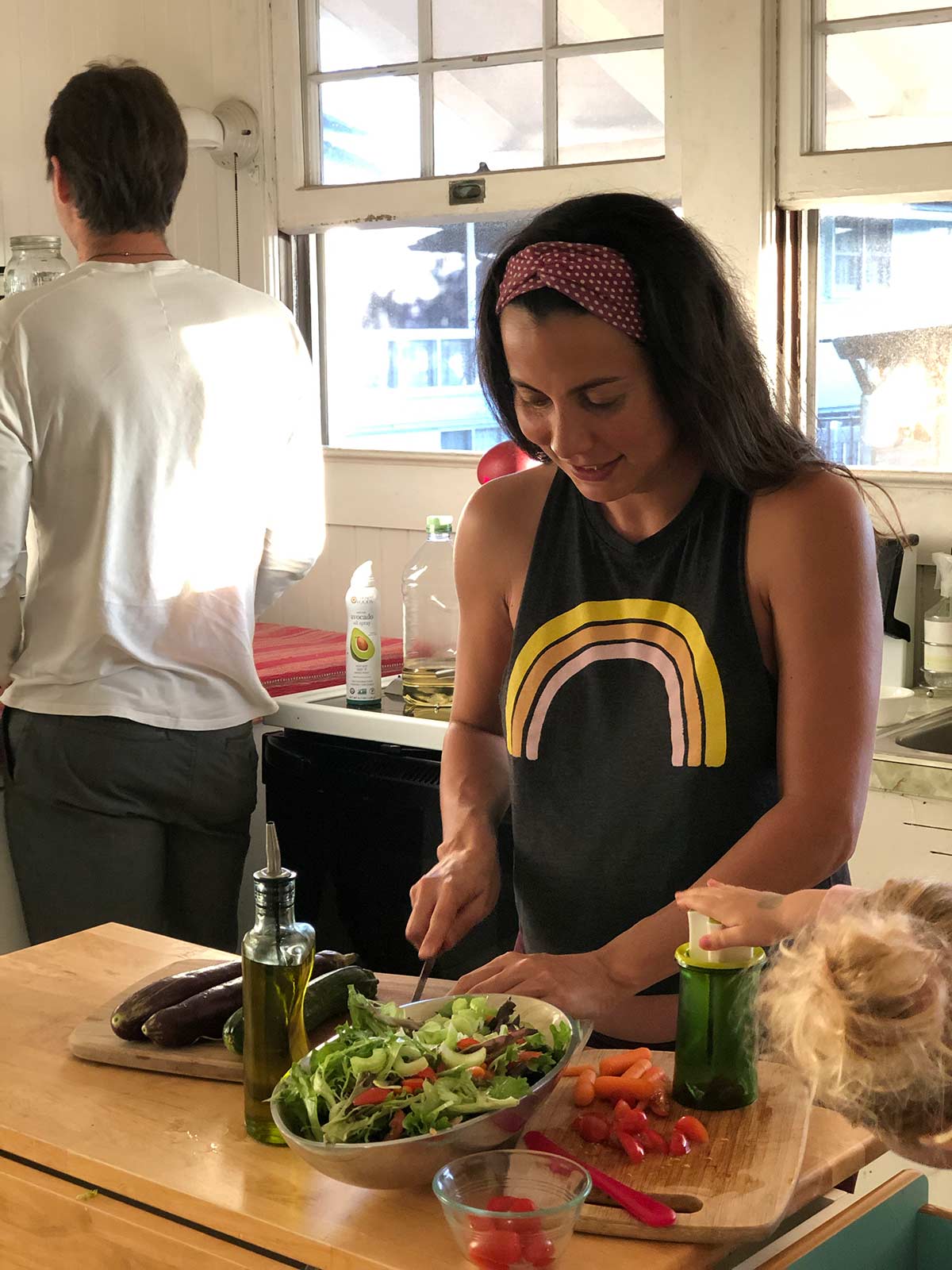
Our dinner routine starts with putting on some fun music in the kitchen.
And I usually have my little Sky helping me with whatever her little hands can grab. Well, as I said, I am in the learning process on how to prepare flavorful meals, but I realized that the right oils could play a major part in various cooking techniques — from sautéing and frying to roasting and baking! For example, baking an eggplant with the right herbs and oil can be a totally different experience than just boiling an eggplant and adding salt. The last option is healthy but not as tasty as the first one.
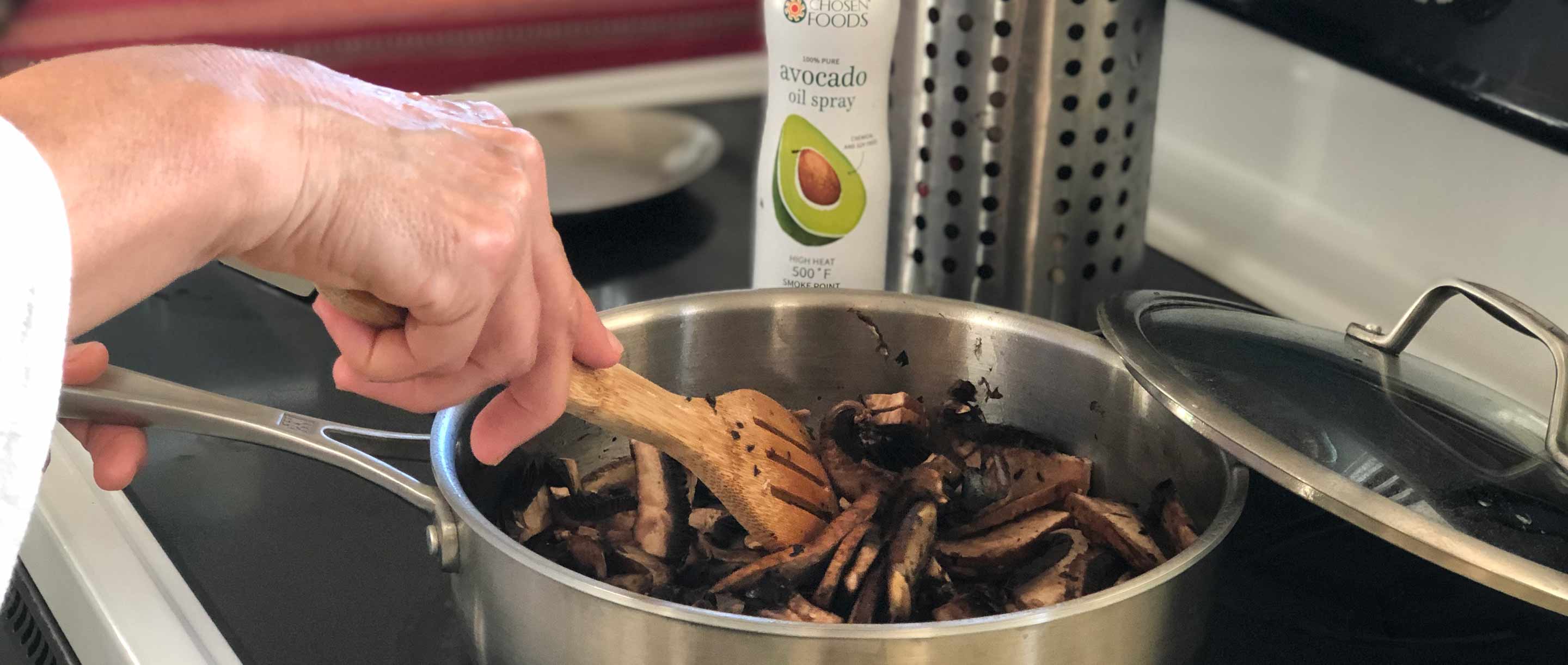
Health is priority, but ‘yummy’ is a new cooking goal! So, I am constantly researching which oil is more appropriate to use. There are plenty of options, some healthy oils like flax and hemp seed are not appropriate for cooking, and should be kept in the refrigerator for a longer shelf life. Extra virgin olive oil is okay to use for cooking if it’s below 365°F, but if you are planning to heat over 420°F, virgin olive oil or olive oil light cannot handle the heat without losing its natural antioxidant properties. Some other oils are genetically modified due their sources, such as canola, corn, soybean, and other vegetable oils, so it might be best to avoid them. In summary, if you overheat the oils above their smoke point, they lose their health benefits!
So, I created this table to simplify what are the best/healthier oils options to use while cooking.
I hope this table helps you make the best decision when using cooking oils for your healthy and tasty dinners.
Bom Apetite!


